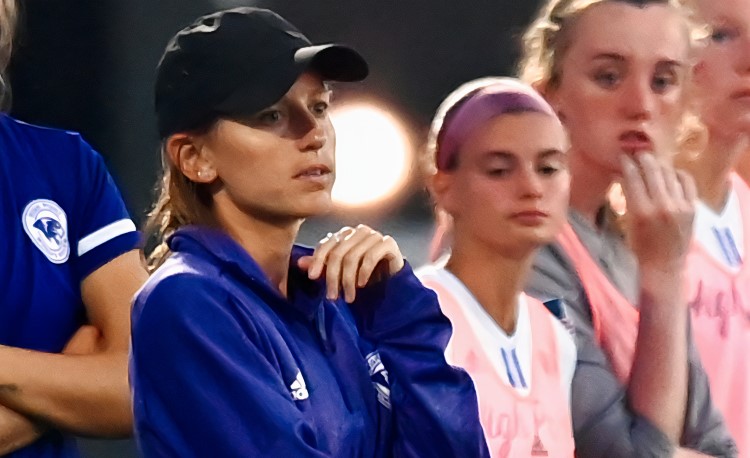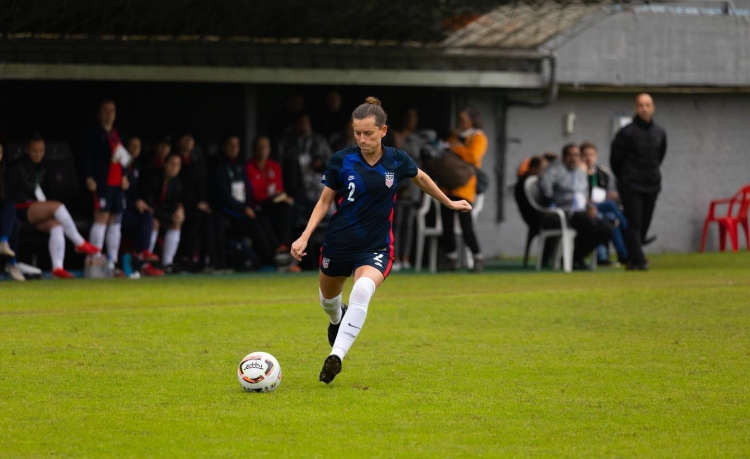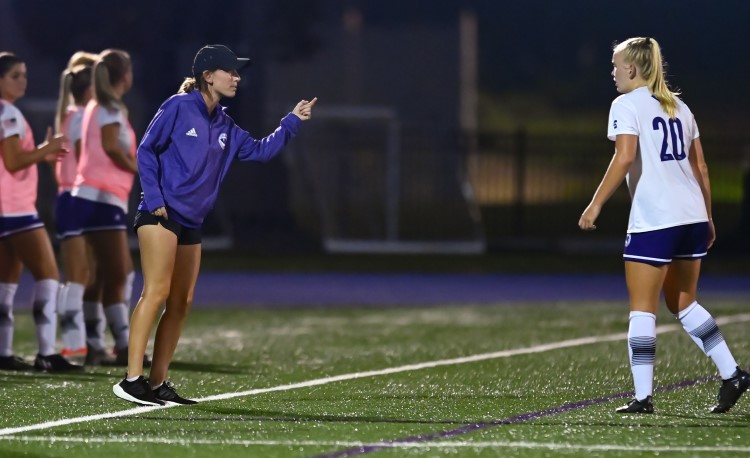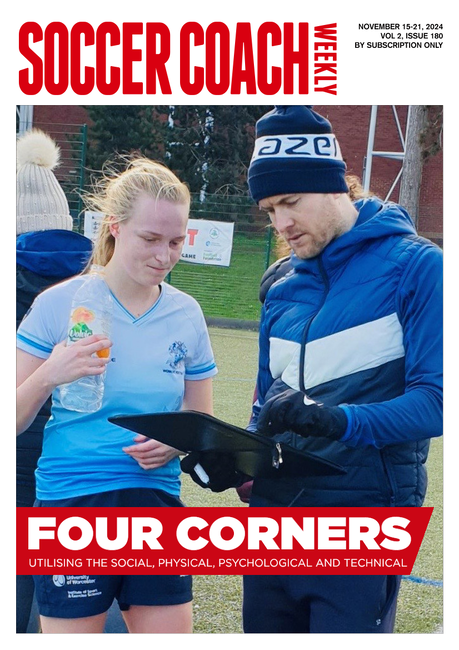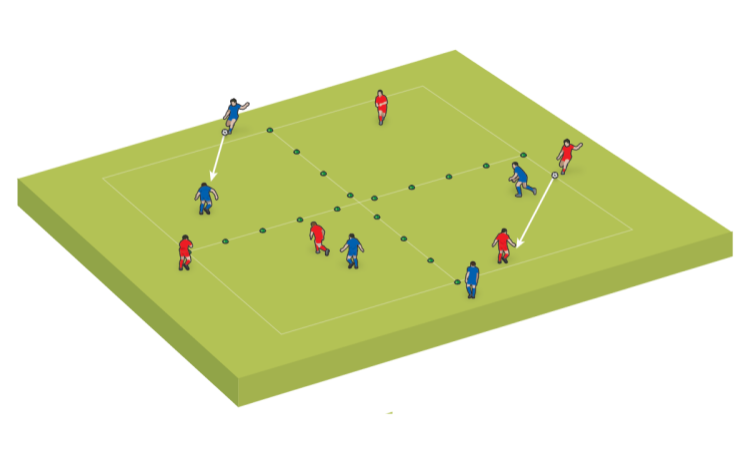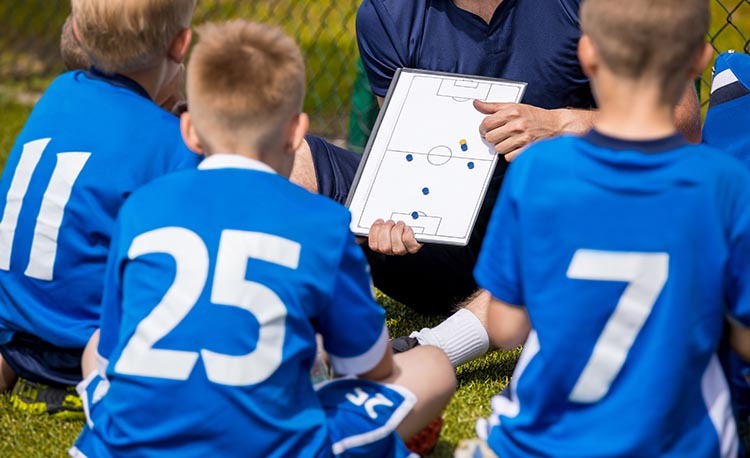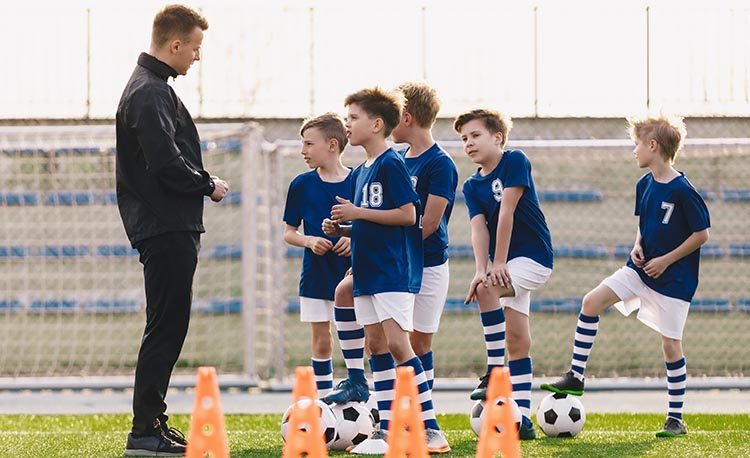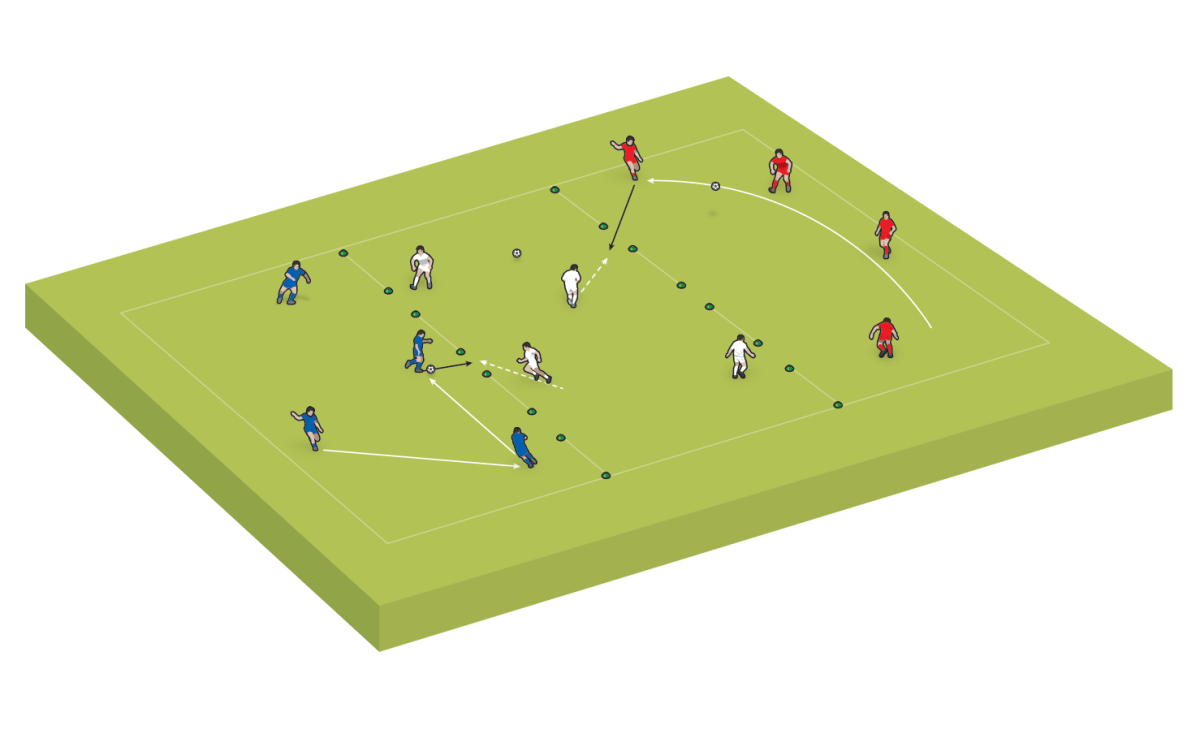Kate Ward: 'Inclusion will make you a better coach'
US Deaf Women’s National Team star and High Point University assistant coach Kate Ward discusses her career experiences and high points with Sam Snow
Kate Ward originally wanted to be an ear, nose and throat doctor - to help those who were also deaf or hard of hearing - or a physical therapist to help other athletes.
During her gap year, time spent in a clinic made her realize she didn’t want to go into healthcare, but rather spend her time giving back to a game that gave so much to her.
Kate is now the assistant women’s soccer coach at High Point University in North Carolina and team captain of the US deaf women’s national team (USDWNT).
She is the immediate past chair of United Soccer Coaches’ Disabilities Allies Coaches’ Community and a USA Deaf Soccer Association board member since 2013.
As the national team prepares for the Deaf World Football Championships in Malaysia in September, I caught up with Kate to find out more about the team, its ethos and impact and the lessons it holds for coaches…
SS: Tell us about the US deaf women’s national team and your experiences in it...
KW: I have been a member of the team since I was 15. I joined at their last training camp before the 2009 Deaflympics. I have been part of teams that won Deaflympic gold medals and Deaf World Championships.
What’s so fascinating about this team is we all have different stories. We come from all walks of life and all areas of the country.
Some of us wear hearing devices, some of us don’t. Some of us sign, some of us use our voices, some of us lip read and others use a combination of the three.
Add in the fact our player pool on average can range anywhere from 15 to 35 – as you can imagine we’ve had some pretty humorous situations.
SS: The team has recently been accepted into the US Soccer extended national teams program. How does this help going forward?
KW: We are finally being paid to play, instead of paying to play. It’s a huge step forward and ensures the success of future generations.
In the past, we have had to grow our player pool by promoting the team on social media and through word of mouth.
We are required to have a certain amount of hearing loss to compete in international events, so we have to do hearing tests before going to camps and events.
"We are finally being paid to play, instead of paying to play. It’s a huge step forward..."
Now that US Soccer has taken over our national teams, the USA Deaf Soccer Association (USADSA) can shift to fully focusing on youth program development.
The dream is to some day have a youth national team and host youth leadership camps.
The USADSA board is about 50% current players, which shows we realize that our duty extends beyond success on the field.
For the first time, everything is being paid for and we get paid a per diem each day. That really is a far cry from having to raise $5,000 every international event and pay for every camp. It’s such an exciting step forward.
While the player pool has grown and been strengthened significantly in the time I have been on the team, the funding of our team also enables our head coaches, Amy Griffin and Joy Fawcett, to have a more selective process when choosing the players.
They are able to watch film before deciding if they should invite a player to a training camp and evaluate them from there.
We also have more training camps to prepare for events. For example, in 2016, we won the Deaf World Football Championship after only training together for a total of eight days over two years.
This year, we will have three camps alone that are five to six days each leading up to Malaysia. We have all the resources of the national teams, so we are very lucky.
UNDERSTANDING THE TERMINOLOGYThe term ’hard of hearing’ refers to someone with mild-to-severe hearing loss. Hard of hearing individuals have some hearing capability.
|
SS: What has been your favorite event so far with the national team?
KW: That’s a tough one. They all are special to me for different reasons. I’d probably say the 2009 Deaflympics in Taipei, Taiwan, was the most memorable.
It was my first event. The country poured an incredible amount of money into the event and built various venues specifically for it. The opening ceremony was unforgettable and felt like the Olympics.
SS: How about a favorite memory with the team?
KW: I think that has to be when our team connected with a young, hard-of-hearing soccer player named Malia.
We first met Malia in 2018. She was nine years old and had flown out to one of our training camps to meet our team. She wore hearing aids, due to her hearing being affected by her fight with neuroblastoma.
When we met her, she was cancer-free and we had an absolute blast with her at camp. It was indescribably touching to see her gain confidence being around people just like her, in the same way that all of my team-mates and I did when we joined the team.
She went back home with a new-found confidence in herself and her hearing aids, and that was a wonderful reminder to my team-mates and I that our team is about more than winning on the field.
"We understand we have been given a unique platform and we want to use it..."
In 2021, Malia unfortunately relapsed, though we are rooting for her all the way in her fight. I made sure to wear my ’Malia Strong x 2’ gear throughout the lead up to, and at, the Brazil Deaflympics last year.
She is so special to my teammates and I, and a powerful reminder of why we do what we do.
SS: The outreach the team is involved in seems to be embedded in the culture...
KW: One of my favorite parts of our team and program’s culture is how hard we work to give back to the community, specifically the d/Deaf and hard-of-hearing kids who are growing up like us.
We understand we have been given a unique platform, and we want to use it to make sure the people who come after us are in a better place than we were.
At every camp, we do a free youth clinic for the community. It’s one of our favorite parts of every camp. My teammates and I also do our best to do our own individual outreach with local d/Deaf and hard-of-hearing kids in schools and communities in our various hometowns.
When I joined the USDWNT at 15, I didn’t quite understand the journey I was about to undertake. I look back 10 years later, and can confidently say this is the most unique and inspiring team I have ever been on.
That’s not necessarily because of our successes on the field, though I will say that we have many. Three-time Deaflympic gold medallists and two time World Cup Champions, undefeated in international play since our inception in 1999 - we do okay...
Related Files
SS: How have you specifically been impacted by the USDWNT?
KW: My life changed when I joined this team. For the first time in my life, I was around people just like me.
I often feel that my teammates and I are facing double discrimination, as females with a disability in a predominantly hearing and male-dominated society.
A vast majority of us grew up in an environment where we had no idea that there were other people just like us out there.
Our first encounters with people like ourselves occurred when we joined the team. That, to me, is a huge problem. There aren’t enough deaf role models in the world.
My teammates and I have come to realize that we have the ability to address that head on. It’s hard to put into words the effect that sports has had on our lives as individuals with a disability. Inclusion. Strength. Normalcy. Empowerment.
In my life, sports has shown time and again to improve quality of life. It levels out the playing field for all. It gives freedom, ignites joy, fosters inclusion, and builds self-confidence in ways that can’t be replicated off the field and away from teammates, a uniform and a ball.
While my teammates and I are proud of our legacy of winning, we are well aware that our responsibilities extend far beyond the field. It’s our goal to make this team better for little girls growing up like us.
SS: What has been the most impactful lesson you have learned, as a player or a coach?
KW: How powerful sport can be off the field. I’ve learned that in numerous ways and at numerous times in both my playing and coaching journey. My goal as a coach is to give back to the game however I can.
Soccer has given me so much - confidence, empowerment, lifelong relationships, and lots and lots of joy. It’s the responsibility of every coach to make each of their players a better person, leader, and player.
My hope is that I can make each team I’m a part of a safe place for those around me to grow and develop on and off the field.
SS: What is the best advice you would give to a coach working with players that have different abilities?
KW: Realize that the athletes you are working with are human beings just like you. They want to be praised, included, developed, and treated just like the player next to them.
You might have to do things a little bit differently, but I can assure you that inclusion will make you a better coach, your team will become a better team, and you will change the life of the athlete with different abilities.
‘raising awareness, providing resources’ – kate on United Soccer Coaches’ Disabilities Allies Coaches Community“We began the community in 2016. Our goal was to raise awareness, provide resources and share information for coaches with disabilities and coaches of athletes with disabilities.
|
Newsletter Sign Up
Coaches Testimonials

Gerald Kearney, Downtown Las Vegas Soccer Club

Paul Butler, Florida, USA

Rick Shields, Springboro, USA

Tony Green, Pierrefonds Titans, Quebec, Canada
Subscribe Today
Discover the simple way to become a more effective, more successful soccer coach
In a recent survey 89% of subscribers said Soccer Coach Weekly makes them more confident, 91% said Soccer Coach Weekly makes them a more effective coach and 93% said Soccer Coach Weekly makes them more inspired.
*includes 3 coaching manuals
Get Weekly Inspiration
All the latest techniques and approaches
Soccer Coach Weekly offers proven and easy to use soccer drills, coaching sessions, practice plans, small-sided games, warm-ups, training tips and advice.
We've been at the cutting edge of soccer coaching since we launched in 2007, creating resources for the grassroots youth coach, following best practice from around the world and insights from the professional game.
